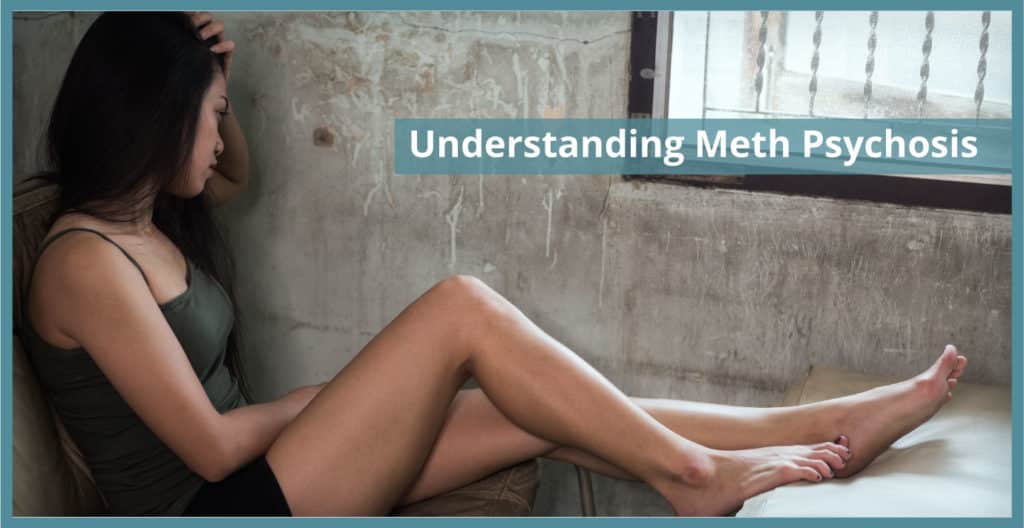Short-term meth dependence use induces a feeling of energy and well-being. The person may feel like they can do anything. The effect is short-lived, followed by an unpleasant crash. To avoid the crash, the person may seek out more of the drug. The longer someone uses the drug, the more dangerous side effects become. About 40 percent of long-term meth sufferers develop symptoms of meth psychosis.
Symptoms Of Meth Psychosis
“Psychosis” is a fairly broad term referring to mental illnesses that impair someone’s ability to determine what is real. In the case of meth psychosis, the person might experience:
- severe paranoia, or a belief that people are “out to get them”
- visual or auditory hallucinations
- delusions, or extreme or implausible beliefs, including “delusions of grandeur” (outsized belief in one’s own importance)
- aggressive or violent behavior
The symptoms of meth psychosis closely resemble the symptoms of paranoid schizophrenia. However, if no previous diagnosis of schizophrenia has been made and the patient uses meth, meth psychosis may be the diagnosis.
What Causes Meth Psychosis?
Meth affects the same neurotransmitters affected in cases of schizophrenia and other forms of psychosis. Those suffering from meth addiction are thus susceptible to similar symptoms. Risk factors in the development of meth psychosis include:
- dosage size
- frequency of use
- duration of use
- history of addiction
- history of use, including sexual abuse
- co-occurring mental health disorders
People who have previously suffered from schizophrenia, schizoaffective or schizotypal disorders are particularly susceptible to this related form of psychosis. Other personality disorders increase the patient’s risk, as does a family history of psychosis, schizophrenia, or other mental health disorders. However, meth use, particularly prolonged meth use, can induce psychotic behavior in people with no history of mental illness whatsoever.
Potential Consequences Of Meth Psychosis
Meth psychosis often has a profound negative impact on a person’s life. The patient may lose friends, jobs, and ties to family members. They may commit criminal acts like theft or assault, crimes they never would have considered before meth became a factor. In addition to the harmful effects of the drug itself, the patient may allow their health to deteriorate. People suffering from meth psychosis have an increased risk of becoming homeless, resorting to living on the street.
Treating Meth Psychosis
In many cases, symptoms of meth psychosis subside when the use of the drug is discontinued. However, patients, their loved ones, and treatment professionals must take extra care—psychotic symptoms can persist after the patient discontinues meth use. As such, the front line of treatment is addiction recovery. Interventions for addiction include medically supervised detoxification, inpatient rehab, and ongoing behavioral therapy to arm the patient with strategies to prevent relapse. A key tool in the treatment of stimulant addiction is an intensive program of supervision and education. Heavily dependent on the relationship between the patient and the therapist, treatment seeks to obtain the patient’s wholehearted commitment to treatment, sobriety, and recovery. Certain medications have also proven effective in relieving symptoms of meth psychosis. These include olanzapine and haloperidol.
What To Do If You Suspect Someone Has Meth Psychosis
If you see a loved one suffering in this manner, it may be tempting to intervene. Exercise extreme caution. People with meth psychosis are extremely unpredictable and may lash out violently. Intervention without professional help can be dangerous. Meth psychosis interventions are delicate and risky. Don’t go it alone. Contact The Bluffs today for assistance and advice on how to help someone suffering from meth psychosis.








